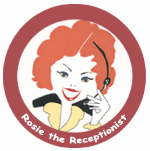 Recently, I read a story about a new movement called "Get Human." It’s an idea that has become a campaign, and it revolves around business ridding themselves of automated phone answering systems. Its founder, Paul English, pushed back against agonizing voice mail automated systems that conspire to keep consumers as far away from a real person as possible.
Recently, I read a story about a new movement called "Get Human." It’s an idea that has become a campaign, and it revolves around business ridding themselves of automated phone answering systems. Its founder, Paul English, pushed back against agonizing voice mail automated systems that conspire to keep consumers as far away from a real person as possible.
Of course, it’s expensive for companies of any size to have live telephone answers whose purpose is to help clients receive the services they need. But then again, isn’t customer service what it’s all about?
As Gordon Bethune, former CEO of Continental Airlines likes to observe, "If you are being rewarded for findings ways to make pizza cheaper, eventually you’ll take the cheese off. You’ll make it so cheap that people won’t eat it."
Isn’t that what automated telephone answering ends up doing? In an effort to save money, companies that supposedly value their customer relationships in every other aspect of their businesses end up cutting the heart out of customer service.
 So what does this have to do with radio? Yes, there are stations, clusters, and companies we interface with that have allowed telephone answering systems to replace people – often at an incalculable expense. But what about clusters of four, five or more stations that essentially rely on a single, haggard receptionist? How can one person effectively move the right calls to the right people, deal with listeners and their questions and issues about contests and promotions, while maintaining the right attitude? Are we really saving money with this model – or are we testing the relationships we have with clients and listeners?
So what does this have to do with radio? Yes, there are stations, clusters, and companies we interface with that have allowed telephone answering systems to replace people – often at an incalculable expense. But what about clusters of four, five or more stations that essentially rely on a single, haggard receptionist? How can one person effectively move the right calls to the right people, deal with listeners and their questions and issues about contests and promotions, while maintaining the right attitude? Are we really saving money with this model – or are we testing the relationships we have with clients and listeners?
In our next blog, we’ll talk about a new model for interfacing with both of these customer bases, and perhaps make some suggestions that will sound so crazy, that someone might actually test them out.
- Media And Technology In 2025: Believe It Or Not! - April 18, 2025
- In Radio, You Just Never Know - April 17, 2025
- The Secret To Making A Great Podcast (And Great Radio) - April 16, 2025




Leave a Reply